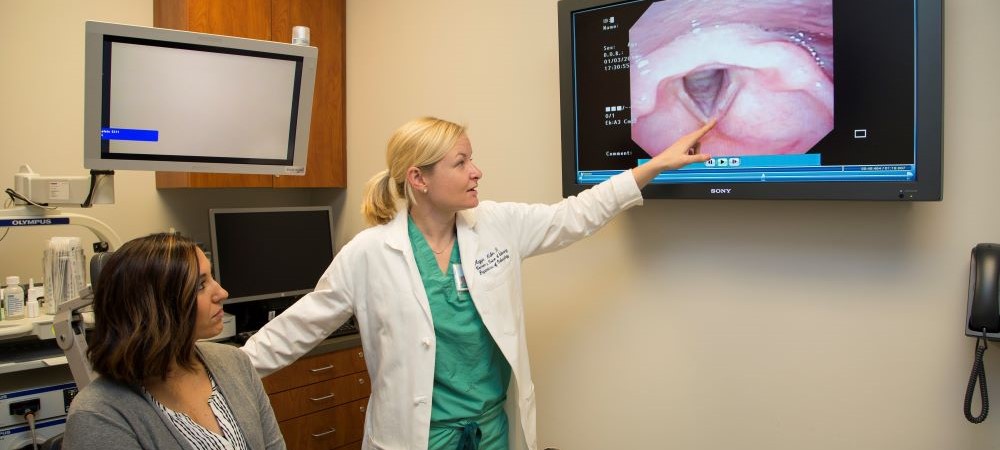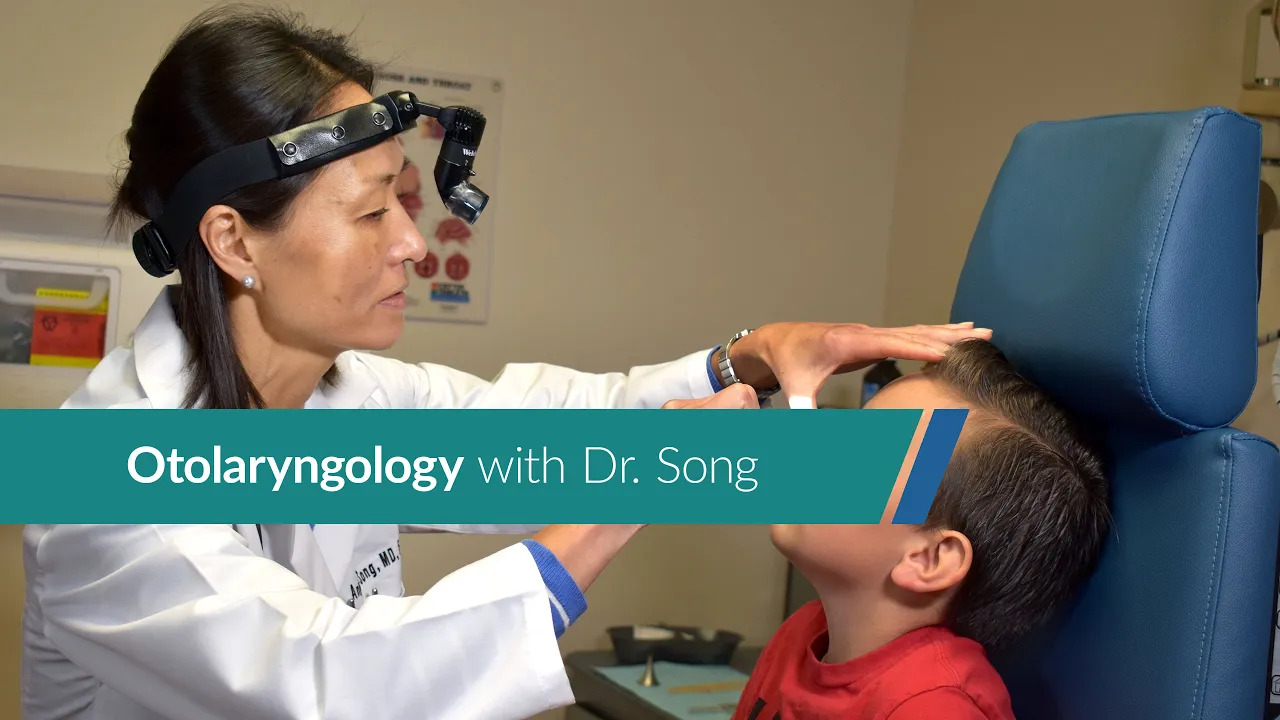When to Seek an ENT Clinic for Recurring Symptoms
Exploring the Field of Otolaryngology: What to Expect When You Speak With an ENT
Otolaryngology, generally referred to as ENT, incorporates the diagnosis and therapy of ear, nose, and throat disorders. For those experiencing relevant concerns, getting in touch with an ENT expert can offer quality and alleviation. Recognizing what to anticipate during such consultations is vital for effective interaction and care. This overview will certainly detail essential aspects of the ENT experience, consisting of typical reasons for visits and the procedures included in diagnosis and therapy.

Recognizing Otolaryngology: An Introduction
Otolaryngology, usually referred to as ENT (Ear, Nose, and Throat) medicine, is a specific branch of medication that concentrates on the diagnosis and treatment of conditions impacting these critical locations of the body. This area includes a large range of disorders, consisting of those related to hearing, balance, respiratory system feature, and speech. Otolaryngologists are educated to manage both medical and surgical treatments, using innovative techniques and modern technologies. Their competence expands past typical ailments, addressing issues such as allergies, sinus infections, and hearing loss. Furthermore, they play a vital function in the administration of head and neck cancers, providing comprehensive care tailored to individual patient needs. In general, otolaryngology remains important for maintaining health and lifestyle in affected individuals.
Typical Factors to See an ENT Specialist
Numerous individuals look for the knowledge of an ENT specialist for a range of reasons, mirroring the diverse nature of problems that impact the nose, throat, and ear. Common issues consist of chronic sinus problems, which typically leads to consistent nasal blockage and facial discomfort. Allergies and their linked symptoms, such as itching and sneezing, likewise trigger sees to these specialists (Otolaryngology). Hearing loss, whether sudden or steady, is one more substantial reason for examination. In enhancement, individuals may look for analysis for throat problems, including persistent hoarseness or swallowing problems. Rest apnea, defined by disturbed breathing during rest, is frequently resolved by ENT specialists as well. Each of these problems highlights the value of specialized treatment in taking care of intricate ENT-related health issues
Preparing for Your ENT Visit
When preparing for an ENT appointment, it is important to gather appropriate details and consider any kind of specific concerns. Patients should compile an in-depth case history, including previous ear, nose, or throat issues, surgical procedures, and present medications. Recording symptoms-- such as duration, seriousness, and regularity-- can provide useful insights for the ENT professional. In addition, people must prepare a checklist of concerns they want to ask, making sure that all worries are attended to throughout the see. Bringing along any type of appropriate medical records or examination outcomes can further aid the ENT in recognizing the person's problem. Lastly, clients ought to confirm their consultation information, including location, day, and time, to minimize any final confusion. Proper prep work can improve the effectiveness of the examination and lead to much better outcomes.
What to Anticipate During the Appointment
As the examination begins, the person can expect to involve in an extensive conversation with the ENT expert concerning their signs and clinical background. The specialist will certainly ask about the duration, regularity, and seriousness of signs such as hearing loss, nasal blockage, or sore throat. Furthermore, the patient's previous clinical conditions, medications, and any pertinent family history will certainly be reviewed, aiding the expert in creating a total understanding of the individual's health. The ENT may additionally ask about way of life factors, such as exposure to irritants or allergens. This open dialogue establishes a foundation for the consultation, guaranteeing that the individual's problems are addressed and setting the stage for any type of essential assessments or suggestions for therapy.
Analysis Examinations and Procedures in Otolaryngology
A variety of analysis examinations and treatments are Go Here crucial in otolaryngology to properly evaluate and diagnose conditions affecting the nose, ear, and throat. Typical tests consist of audiometry, which determines hearing feature, and tympanometry, assessing center ear pressure. Nasal endoscopy enables visualization of the nasal passages and sinuses, while laryngoscopy analyzes the throat and vocal cords. Imaging techniques, such as CT scans and MRIs, provide comprehensive views of head and neck structures. Allergy testing might additionally be performed to recognize triggers for sinus or respiratory system problems. These diagnostic devices make it possible for ENT experts to develop a comprehensive understanding of patients' conditions, making certain tailored and reliable administration plans. Correct medical diagnosis is necessary for successful therapy end results in otolaryngology.
Therapy Alternatives Provided by ENT Specialists
ENT professionals provide a variety of therapy alternatives tailored to resolve particular problems impacting the nose, throat, and ear. nasal wash These treatments range from traditional techniques, such as medication and lifestyle adjustments, to more intrusive procedures. Allergies might be handled with antihistamines or immunotherapy, while click here now persistent sinusitis may call for nasal corticosteroids or sinus surgical treatment. For hearing loss, ENT specialists frequently advise hearing aids or surgical treatments like cochlear implants. In cases of throat disorders, alternatives can include speech treatment or procedures to get rid of obstructions. Furthermore, they might provide support for handling sleep apnea, including using CPAP gadgets or surgical treatments. In general, the goal is to improve individuals' quality of life via personalized care and reliable treatment methods.
When to Look For Follow-Up Treatment With an ENT
Acknowledging when to seek follow-up care with an ENT expert is essential for managing continuous symptoms or complications related to nose, ear, and throat problems. Patients ought to think about arranging a follow-up consultation if signs continue despite first treatment, such as persistent ear discomfort, nasal blockage, or throat discomfort. Changes in hearing, balance problems, or uncommon nasal discharge might additionally necessitate more examination. Furthermore, if a client experiences negative effects from suggested drugs or has gone through a procedure, follow-up care is vital to check recuperation and address any worries. Prompt examinations can ensure efficient monitoring of problems, avoid prospective difficulties, and give comfort concerning one's health. Looking for follow-up care advertises proactive wellness administration in otolaryngology.
Frequently Asked Inquiries

What Credentials Should I Seek in an ENT Professional?
When looking for an ENT specialist, one need to look for board accreditation, appropriate experience, and solid person evaluations. In addition, efficient interaction skills and a thoughtful approach can significantly improve the total therapy experience.
How Do I Pick the Right ENT for My Needs?
Choosing the best ENT expert entails examining their credentials, experience, and person reviews (Sinus). It is necessary to consider their communication design and approach to treatment, guaranteeing they line up with the individual's certain health requirements and choices
Exist Any Type Of Threats Related To ENT Procedures?
The dangers associated with ENT procedures might consist of infection, bleeding, anesthetic problems, and prospective damages to bordering frameworks. Clients need to discuss these dangers with their doctor to comprehend specific problems and warranty notified decisions.
Just How Can I Handle Stress And Anxiety Prior To My ENT Consultation?
To take care of anxiousness before an appointment, people can practice deep breathing exercises, envision favorable results, prepare inquiries beforehand, and seek support from buddies or household, promoting a feeling of peace of mind and peace.
What Should I Do if I Experience Side Impacts From Therapy?
If adverse effects from therapy happen, the person must immediately report them to their doctor. Adjustments to therapy or added treatments may be required to guarantee safety and performance in handling their problem - ENT Doctor. As the consultation starts, the person can anticipate to involve in a thorough conversation with the ENT expert concerning their signs and clinical background. These analysis tools make it possible for ENT professionals to establish an extensive understanding of clients' conditions, making certain customized and effective monitoring plans. ENT experts supply a selection of treatment alternatives customized to deal with details conditions influencing the ear, throat, and nose. When looking for an ENT specialist, one must look for board accreditation, pertinent experience, and solid client reviews. Selecting the right ENT professional involves reviewing their certifications, experience, and patient evaluations